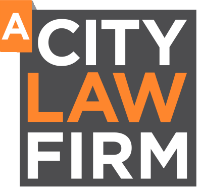
Karen Holden, the female founder of A City Law Firm Limited, an award-winning legal 500 practice, is passionate and committed to helping other female founders achieve success and recognition in their fields. She was given Freedom of the City for her Equality work, and several other awards including Best Business Women in Legal Services and Legal advisor of the year. She has also assisted thousands of companies to grow, take in investments and sell. Her program focuses on what female founders don’t know & need to know. For international women’s day, she discusses the investment due diligence process and everything surrounding it. www.femalefoundersgrowth.com launched event highlighted so many gaps in knowledge and the program has been tailored to address this.
4 things founders often forget
Founders should consider a variety of things at each stage of their business development, but many are overlooked, including:
- Free money – for example, grants, R&D tax credits, patent box, and there are many more available and unclaimed;
- Are you ready to pitch? This is not just about the concise and credible pitch deck, the valuation and the financials stacking up. You must have a sound business strategy and a plan for their investment money. Furthermore, your confidence and ability to pitch are essential.
- Is your brand, invention and trademark protected and persuasive for investors and customers? That you fully own all the IP, as this is your collateral!
- The investment panel we hosted revealed what they are looking for and how you get your foot in the door now and in the future. So you need to know what you want, it is aligned with what they want? It is not just being ready for investment but also understanding the due diligence process and being prepared for that.
What do you need to have ready for investors? Is this why women do not secure the investment?
What are investors going to look at, and what are they going to ask you? In our experience, many female founders are under-prepared, which could jeopardise the deal.
Understand the process
- You will likely be asked to make several warranties and disclosures which protect the investor against any potential claims in the future. Do you understand your responsibilities?
- You will be negotiating terms, which will likely be incorporated into a shareholders’ agreement and other transactional documents.
- Have you set the parameters of what you are willing to agree or compromise on
- How much control are you willing to give away
- Is this agreed upon amongst current shareholders/founders?
- Ensure your business is legally sound BEFORE you seek investment. Identify red flags early, so it’s not found by the investor and gives them cause for concern; Is your IP owned fully / legally by you (as this only passes in writing, or do you need to execute some license agreements or subcontractors agreements to highlight the investors this ownership
Boring legal, but essential
- Do you understand drag along and tag along terms that are essential for you controlling future share transfers or sales; do you understand how you will later be diluted?
- If you want to leave or another shareholder leaves, what exit terms can you agree to protect the business?
- Have you registered all the shareholdings at Companies House to reflect your cap table?
- Do your company’s articles of association permit you to accept additional directors?
- Do you have a director’s service level agreement setting out your authority, what benefits and salaries are you entitled to? Having this makes it difficult to re-negotiate terms later by an investor.
- Will your directors’ loans be written off? You need to carefully consider how you approach the investor and tax structuring issues and how you make the transaction beneficial for you.
- Is your trademark portfolio ready to provide to the investor, along with proof of any patents filed?
- Are your employment / sub-contractors agreements robust and signed? The investor would want to ensure confidentiality; your trade secrets are secure. Do you have restrictive covenants that prevent employees from setting up in competition or working for a competitor?
About the Investor
- Will the investor have a seat on the board? What can they vote on? Ho much control are you giving them?
- Are you accepting passive money, or is the investor offering you more? How are you confident they will deliver? Do you or they have KPI’s?
How to promote your business
- Do you have any contracts or promise letters to stock your product or for somebody to develop your product? These are persuasive and will help move the talks forward.
- Can you evidence ownership of your IP if created by a third party?
- If you have SEIS or EIS, has this been carefully documented, including how you have spent the money in accordance with the protocols? If you don’t have EIS, why not & do you qualify?
Progressing the deal is not the end of the story
- You need somebody to coordinate the compromises you are prepared to make. For example, how much dilution, shareholding and control you are willing to give away. Think about your exit plan as well as the investor’s exit plan. How long are you tied in for, and do you have the right to sell your business?
- When you get the investment, you also need to consider infrastructure.
- How are you going to recruit?
- Who is going to develop your technology?
- Do you need commercial property?
- Who will run your business while you are running the development aspects?
- Who will sit on your board of directors?
- How will your valuation and financials be updated?
- Tax advice is essential throughout the entire process. What is your investors’ exit plan versus your exit plan? The more tax efficient and structured you are, the less tax you pay in the future. Cash flow will always be an issue for many businesses. Getting money out of the business tax efficiently is essential, and how you buy out your partners as you move forward is something to consider.
Conclusion
This is just a flavour of the many aspects we consider with founders. There is sometimes too much information out there, which can be overwhelming, so we try to consolidate everything
During the launch day of the Female Founders Growth program, 7 females pitched their businesses to an investment panel. We are excited that 3 are close to securing investment. However, 2 are being asked to accept more. This supports the perception that women do not usually ask for enough money. It also shows that by getting it right early, businesses can get the right investment from the right people at the right time, as they are willing to work with you.
On the flip side, those that go in unprepared are often dismissed and getting back in the door isn’t that easy.
Karen Holden founded A City Law Firm 15 years ago with £5000 and a suitcase of files. The recession caused serious cash flow issues, which she had to resolve before scaling. She did not seek investment but debt finance which was unusual for a female founder. It meant she could successfully scale her business as a 100% shareholder. So a founder can grow their business in many different and alternative ways.
The landscape does need to change so that we can see more female-led businesses & inward investment into female-founded businesses. However, Female founders need to break down their own barriers by taking confidence to ask for more money. Before doing so they must take the time to ensure their business strategy and information is concise and robust. They must also not take no for an answer, they need to keep trying.

Karen Holden is the Managing Director & Founder of A City Law Firm who practise both commercial law and litigation, having been admitted to the roll in 2005. If you require further advice or assistance, please do not hesitate to contact [email protected]
A City Law Firm Limited is a leading entrepreneurial law firm in the city of London, with a dynamic and diverse team of lawyers. It was awarded most innovative law firm, London 2016 and Business Law firm 2017. They specialise in start-up business law, the tech industry, IP and investment.

























